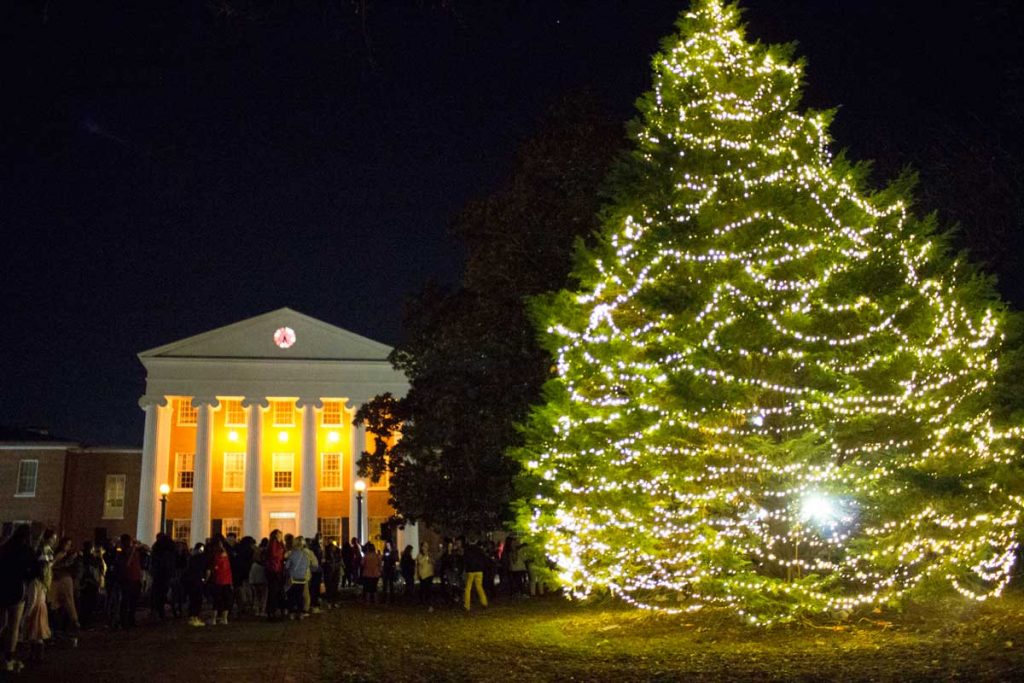I recently went to see the play “1984” put on by the Aquila Theatre company of New York. It is a fantastic and moving play depicting a dystopian society where “Big Brother” is always watching, and I couldn’t help but think, “This all seems so familiar.”
The book that many of us read in high school never seemed so real until I saw it acted out on stage. From the play, I noticed some startling similarities between Orwell’s chilling world and today’s American society.
One of the most threatening similarities between “1984” and our current culture is the notion that thought is a crime. While we may not have Thought Police lurking in the streets and watching our every move through a telescreen, we do have universities passing hate speech codes. These codes are created to limit hate speech on campus –– speech that some say hinders academic freedom because women and minority groups are subject to distracting slander.
Colleges and universities that create speech codes not only limit speech in the public sphere, but they also cause students to self-censor. Rather than bringing sensitive subjects to light for debate, some students bite their tongue, flying under the radar until they can voice their opinions elsewhere.
The Foundation for Individual Rights in Education, a group focused on maintaining First Amendment liberties on college campuses, published a 2018 list of the worst colleges for free speech. Among the top 10 were DePaul University in Chicago, Texas State University in San Marcos, Texas, and University of California in Berkeley. Citing violations of free speech rights by administrators, its list included students censored for political speech on the right and left. Although Ole Miss did not make the cut, we are not innocent.
The culture on our campus parallels the dystopian society in “1984.” While many find the movement of the Confederate monument from the Circle a moot point, its removal shows that we are not respecting the lessons learned from history.
The Civil War points to how deep divisions can lead to the destruction of our great nation, but it also shows how far our country has come in valuing the lives of all people. The monument in the Circle reminds us of these hard truths and propels us forward in creating unity and friendship.
Like Big Brother in “1984,” we are whitewashing history, removing the parts that we don’t like for the benefit of those in power. When the tides of war shifted in Orwell’s story, Big Brother had people rewrite history to reflect what was happening in the present. It seemed that what happened in the present had always occur and will persist throughout time, even if something had changed.
The same is happening today, though on a much smaller scale. The main character of “1984,” Winston Smith, says it best: “who controls the past controls the future.” There may be legitimate arguments on both sides of the debate regarding the monument, but in any case, we cannot learn history if we rewrite it.
Luckily, our times are not as bad at least not yet, but how long until “1984” becomes a reality? How long until we lose the principles that this country was founded upon in the name of “social liberation”? The culture of today has become Godless and is destroying everything that does not conform to its beliefs.
Beware of the dangers of Big Brother, also known as big government. It is our duty to restore ideas such as free speech, limited government and free enterprise. The solutions to our problems do not lie with a few elites put in charge of society, but in our actions as individuals to help our fellow man. Protect the rights of your neighbor and our society will be spared from the fate “1984” threatens.
Lauren Moses is a junior economics and political science major from Coppell, Texas.















